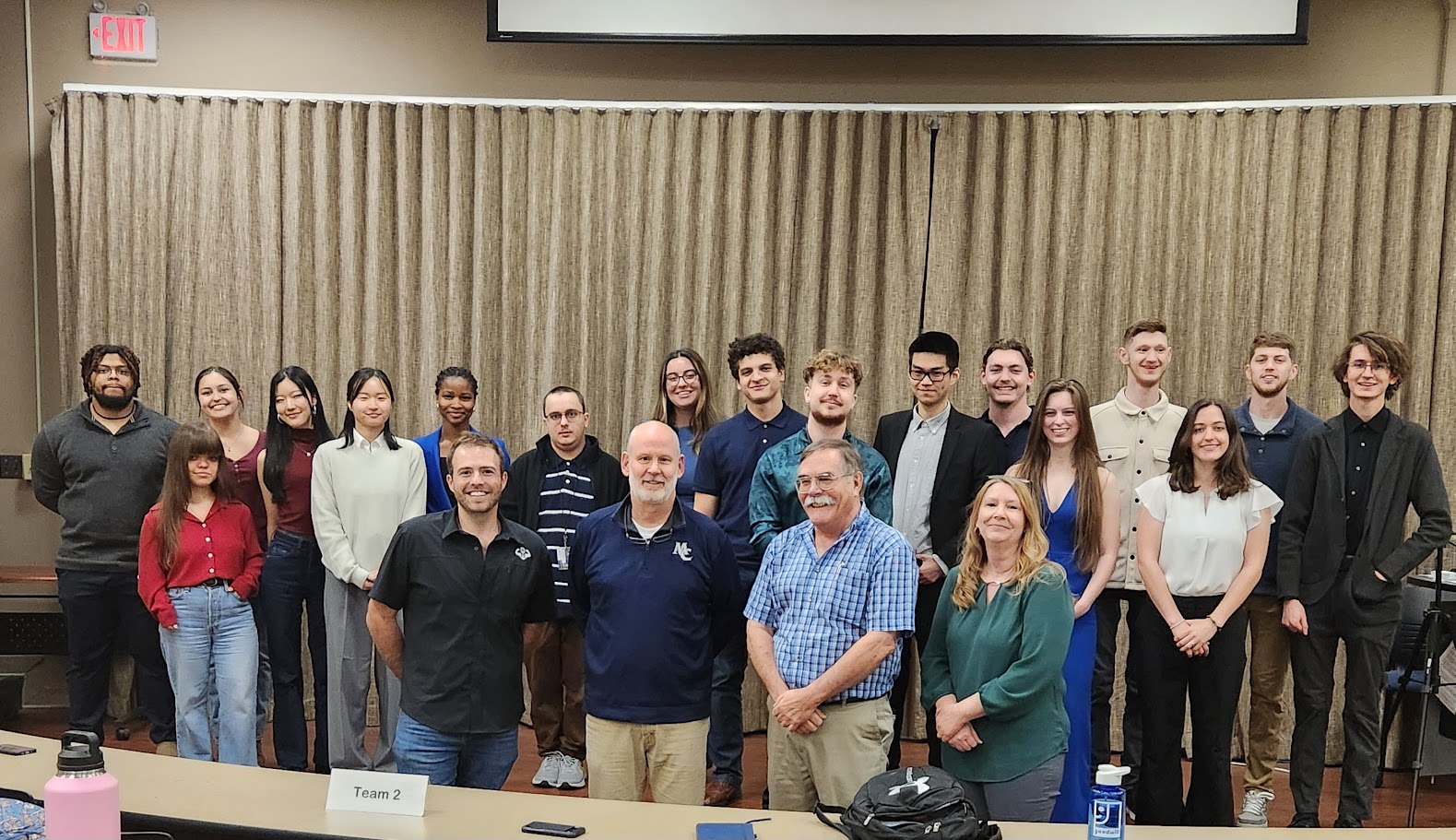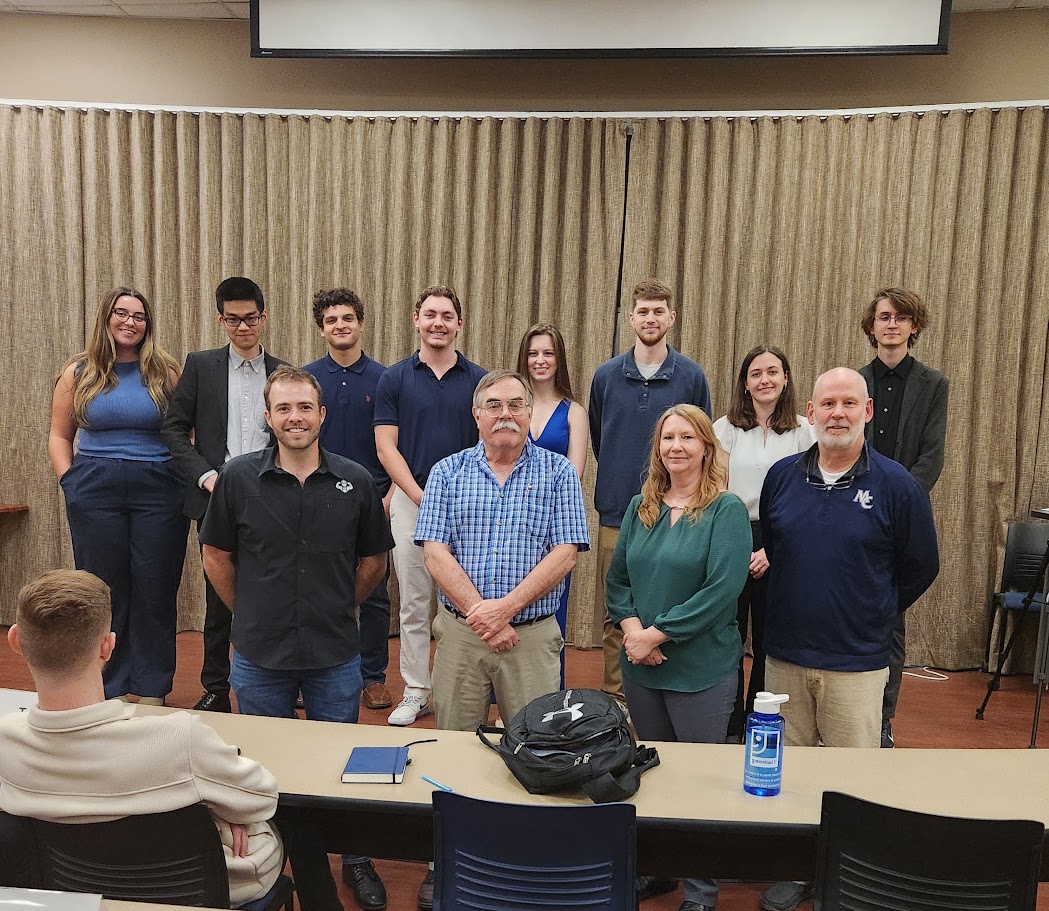On Saturday, March 29, 2025, six teams of students spent over 10 hours on the Marietta College campus to compete in the PioSolve Hackathon. This event was sponsored by Flex Crew.
Alex Hogan ’18, Co-Founder and President of FlexCrew, shares his reasoning for supporting PioSolve as follows:
“As a proud alumnus of Marietta College and a former participant in a student case competition, our company is thrilled to be the sponsor of the 2025 Hackathon. This event holds a special place in my heart as it provides students with the invaluable opportunity to collaborate on real-life business challenges. Supporting this initiative allows me to give back to the community that shaped my career and to inspire the next generation of innovators.”
The mission of the PioSolve Hackathon is to engage students in problem-based, multidisciplinary learning by providing the opportunity to examine the root causes of local and global social, environmental, political, and economic problems, and find creative solutions that students themselves can put into action.
This year’s problem statement (below) was submitted by the program sponsor, Alex Hogan.
“Shortage of Skilled Labor in the US. As a team of action-oriented, creative problem solvers, your job is to determine the root cause(s) of the problem of skilled labor shortage in America, examine the potential consequences of leaving the problem unsolved, and propose actionable strategies to mitigate this problem.”
The winners of the competition were determined collectively by four judges. The evaluation rubric is shown below. Judges assigned a score to each project between 1 to 20 points in each of the following seven categories:
Root Cause Identification (1 to 20)
The degree to which the root cause of the problem is correctly identified and described.
Quality of the Evidence (1 to 20)
The quality of the evidence provided in support of the assumptions.
(1 to 20)
Consequences
The extent to which the team clearly and accurately explains the consequences of not solving the problem.
Quality of Solution (1 to 20)
The degree to which the proposed solution is unique, reasonable, and creative.
Feasibility of Solution (1 to 20)
The degree to which the team’s action plan is feasible.
Quality of presentation (1 to 20)
Quality of Answers During Q&A (1 to 20)
The Hackathon judges were as follows:
- Dr. Greg Delemeester, McCoy Professor of Economics at Marietta College
- Alex Hogan’18, President of 3 Promise Labor Services and Co-Founder and President of Flex Crew
- Amanda Sutphin, Regional Talent Coordinator at Ohio Southeast Economic Development
- Linn Yost, Founding Member of Appalachian Ohio Manufacturers’ Coalition

All competitors received a special PioSolve virtual badge. In addition, the top three teams received monetary awards in the amounts of $400, $300, and $200. The top three projects were as follows:
| Project | Abbreviated Description | Team Members ( Major, Class) | Award |
| Tradetown Adventures | A space where middle school students engage in fun, hands-on skill-developing activities. |
| $400 |
| Buildback Program | Solving the skilled labor shortage through rehabilitation programs. |
| $300 |
| Trade School Partnership with Universities | Creating an easy transition from one institution to another. |
| $200 |
